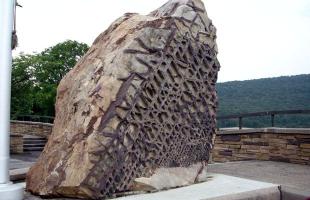Copy Link
Add to Bookmark
Report
Computer Undergroud Digest Vol. 10 Issue 44

Computer underground Digest Sun Aug 2, 1998 Volume 10 : Issue 44
ISSN 1004-042X
Editor: Jim Thomas (cudigest@sun.soci.niu.edu)
News Editor: Gordon Meyer (gmeyer@sun.soci.niu.edu)
Archivist: Brendan Kehoe
Shadow Master: Stanton McCandlish
Shadow-Archivists: Dan Carosone / Paul Southworth
Ralph Sims / Jyrki Kuoppala
Ian Dickinson
Field Agent Extraordinaire: David Smith
Cu Digest Homepage: http://www.soci.niu.edu/~cudigest
CONTENTS, #10.44 (Sun, Aug 2, 1998)
File 1--S1482 (Bill to amend Comm Act - June 25 '98 version)
File 2--GORE ANNOUNCES STEPS TOWARD ELECTRONIC BILL OF RIGHTS
File 3--"HACKER MYTH CRUMBLE" (DEFCON VI Report (from NYT))
File 4--Teens Who Hacked Into U.S. Computers Plead Guilty
File 5--E-mail Security Flaw Information (NYT & Knight/Ridder)
File 6--Regarding the "ClearZone" proposal.
File 7--Cu Digest Header Info (unchanged since 25 Apr, 1998)
CuD ADMINISTRATIVE, EDITORIAL, AND SUBSCRIPTION INFORMATION ApPEARS IN
THE CONCLUDING FILE AT THE END OF EACH ISSUE.
---------------------------------------------------------------------
Date: Mon, 3 Aug 1998 23:49:56 -0500
From: jthomas@VENUS.SOCI.NIU.EDU(Jim Thomas)
Subject: File 1--S1482 (Bill to amend Comm Act - June 25 '98 version)
((MODERATORS NOTE: In the past few issues, we've run commentary
and snippets of text from S 1482, which many observers find a
danger to Net freedom. Here again is the latests version of the
Senate Bill)).
To amend section 223 of the Communications Act of 1934 to establish a
prohibition on commercial distribution on the World Wide Web of
material that is harmful to minors, and for other... (Reported in the
Senate)
S 1482 RS
Calendar No. 436
105th CONGRESS
2d Session
S. 1482
[Report No. 105-225]
To amend section 223 of the Communications Act of 1934 to establish a
prohibition on commercial distribution on the World Wide Web of
material that is harmful to minors, and for other purposes.
IN THE SENATE OF THE UNITED STATES
NOVEMBER 8, 1997
Mr. COATS introduced the following bill; which was read twice and
referred to the Committee on Commerce, Science, and Transportation
JUNE 25, 1998
Reported by Mr. MCCAIN, without amendment
_________________________________________________________________
A BILL
To amend section 223 of the Communications Act of 1934 to establish a
prohibition on commercial distribution on the World Wide Web of
material that is harmful to minors, and for other purposes.
Be it enacted by the Senate and House of Representatives of the United
States of America in Congress assembled,
SECTION 1. PROHIBITION ON COMMERCIAL DISTRIBUTION ON THE WORLD WIDE WEB OF
MATERIAL THAT IS HARMFUL TO MINORS.
(a) PROHIBITION-
(1) IN GENERAL- Section 223 of the Communications Act of 1934 (47
U.S.C. 223) is amended--
(A) by redesignating subsections (e), (f), (g), and (h) as
subsections (f), (g), (h), and (i), respectively; and
(B) by inserting after subsection (d) the following new
subsection (e):
`(e)(1) Whoever in interstate or foreign commerce in or through the
World Wide Web is engaged in the business of the commercial
distribution of material that is harmful to minors shall restrict
access to such material by persons under 17 years of age.
`(2) Any person who violates paragraph (1) shall be fined not more
than $50,000, imprisoned not more than six months, or both.
`(3) In addition to the penalties under paragraph (2), whoever
intentionally violates paragraph (1) shall be subject to a fine of
not more than $50,000 for each violation. For purposes of this
paragraph, each day of violation shall constitute a separate
violation.
`(4) In addition to the penalties under paragraphs (2) and (3),
whoever violates paragraph (1) shall be subject to a civil fine of
not more than $50,000 for each violation. For purposes of this
paragraph, each day of violation shall constitute a separate
violation.
`(5) It is an affirmative defense to prosecution under this subsection
that the defendant restricted access to material that is harmful
to minors by persons under 17 years of age by requiring use of a
verified credit card, debit account, adult access code, or adult
personal identification number or in accordance with such other
procedures as the Commission may prescribe.
`(6) This subsection may not be construed to authorize the Commission
to regulate in any manner the content of any information provided
on the World Wide Web.
`(7) For purposes of this subsection:
`(A) The term `material that is harmful to minors' means any
communication, picture, image, graphic image file, article,
recording, writing, or other matter of any kind that--
`(i) taken as a whole and with respect to minors, appeals to
a prurient interest in nudity, sex, or excretion;
`(ii) depicts, describes, or represents, in a patently
offensive way with respect to what is suitable for
minors, an actual or simulated sexual act or sexual
contact, actual or simulated normal or perverted sexual
acts, or a lewd exhibition of the genitals; and
`(iii) lacks serious literary, artistic, political, or
scientific value.
`(B) The terms `sexual act' and `sexual contact' have the
meanings assigned such terms in section 2246 of title 18,
United States Code.'.
(2) CONFORMING AMENDMENT- Subsection (g) of such section, as so
redesignated, is amended by striking `(e), or (f)' and
inserting `(f), or (g)'.
(b) AVAILABILITY ON INTERNET OF DEFINITION OF MATERIAL THAT IS HARMFUL
TO MINORS- The Attorney General, in the case of the Internet web
site of the Department of Justice, and the Federal Communications
Commission, in the case of the Internet web site of the
Commission, shall each post or otherwise make available on such
web site such information as is necessary to inform the public of
the meaning of the term `material that is harmful to minors' under
section 223(e) of the Communications Act of 1934, as amended by
subsection (a) of this section.
Calendar No. 436
105th CONGRESS
2d Session
S. 1482
[Report No. 105-225]
A BILL
To amend section 223 of the Communications Act of 1934 to establish a
prohibition on commercial distribution on the World Wide Web of
material that is harmful to minors, and for other purposes.
_________________________________________________________________
JUNE 25, 1998
------------------------------
Date: Sun, 2 Aug 1998 14:16:49 -0500
From: jthomas@VENUS.SOCI.NIU.EDU(Jim Thomas)
Subject: File 2--GORE ANNOUNCES STEPS TOWARD ELECTRONIC BILL OF RIGHTS
THE WHITE HOUSE BRIEFING ROOM
July 31, 1998
VICE PRESIDENT GORE ANNOUNCES NEW STEPS TOWARD AN ELECTRONIC
BILL OF RIGHTS
Message Creation Date was at 31-JUL-1998 12:01:00
THE WHITE HOUSE
Office of the Vice President
____________________________________________________
For Immediate Release Contact:
Friday, July 31, 1998 (202) 456-7035
VICE PRESIDENT GORE ANNOUNCES NEW STEPS TOWARD AN
ELECTRONIC BILL OF RIGHTS
New Efforts Will Protect Americans , in Four Key Areas
Washington, DC -- Vice President Gore announced new steps toward
an Electronic Bill of Rights, an effort to protect one of the
oldest and most basic American values -- privacy -- with the rise
of new technology.
"We need an electronic bill of rights for this electronic age,"
Vice President
Gore said in an event in the Roosevelt Room at the White House.
"You should have the right to choose whether your personal
information is disclosed; you should have the right to know how,
when, and how much of that information is being used; and you
should have the right to see it yourself, to know if it's
accurate."
Following a major address at New York University this May, the
Vice President renewed the call for an Electronic Bill of Rights
by asking everyone to do their part to protect individual privacy
-- relying on private sector leadership where possible, on
legislation when necessary, on responsible government handling of
personal information, and on an informed public.
The Vice President announced new action in four key areas:
Protecting sensitive personal information. Taking new executive
action and calling for tough new legislation to protect personal
information such as medical and financial records -- and ensuring
that existing privacy laws are strong enough to protect privacy as
technology grows and changes;
Stopping identity theft. Calling for strong new penalties for
so-called "identity theft";
Protecting children's privacy on-line. Calling for strong new
measures to protect children's privacy on-line -- by ensuring that
data is not collected from children without their parents ,
consent; and
Urging voluntary private sector action to protect privacy.
Challenging the private sector to continue to take effective
voluntary steps to protect privacy
on-line.
###
PROTECTING AMERICANS , PRIVACY IN THE INFORMATION AGE: AN
ELECTRONIC BILL OF RIGHTS
"Privacy is a basic American value -- in the Information Age, and
in every age. And it must be protected. We need an electronic
bill of rights for this electronic age. You should have the right
to choose whether your personal information is disclosed; you
should have the right to know how, when, and how much of that
information is being used; and you should have the right to see it
yourself, to know if it's accurate." -- Vice President Gore
In a major address at New York University this May, Vice
President Gore called
for an Electronic Bill of Rights to protect one of the oldest and
most basic American values -- privacy -- with the rise of new
technology. Today at the White House, the Vice President will
announce a series of measures that represent the latest step
toward making the core principles of the Electronic Bill of Rights
a reality. His plan calls on everyone to do their part to protect
individual privacy -- relying on private sector leadership where
possible, legislation when necessary, responsible government
handling of personal information, and an informed public.
The Vice President will announce new action in four key areas:
Protecting sensitive personal information. Taking new executive
action and calling for tough new legislation to protect personal
information such as medical and financial records -- and ensuring
that existing privacy statutes are strong enough to protect
privacy as technology grows and changes;
Stopping identity theft. Calling for strong new penalties for
so-called "identity theft";
Protecting children's privacy on-line. Calling for strong new
measures to protect children's privacy on-line -- by ensuring that
data is not collected from children without their parents ,
consent;
Urging voluntary private sector action to protect privacy.
Challenging the private sector to continue to take effective
voluntary steps to protect privacy
on-line.
Sensitive Personal Information
Medical Records. Currently, Americans have stronger privacy
protections for their video rentals than they do for their medical
records. The Administration
believes this is unacceptable. The Administration has proposed
strong medical privacy recommendations and urged Congress to pass
legislation that gives Americans the privacy protections they
need. If Congress does not pass strong medical privacy
legislation, the Administration fully intends to implement privacy
protections consistent with the authority given to us by the law.
For example, next week the Administration is releasing a proposed
rule to establish standards for the security of health information
used by health care providers, health plans, and others (e.g.
security and confidentiality practices, access controls, audit
trails, physical security, protection of remote access points,
etc.)
In 1996 Congress directed HHS to develop standards for unique
health identifiers under the Health Insurance Portability and
Accountability Act of 1996. However, because the availability of
these identifiers without strong privacy protections in place
raises serious privacy concerns, the Administration is committed
to not implementing the identifiers until such protections are in
place. It is also important to note that the privacy provisions
passed in the House Republicans patients , rights legislation last
week certainly do not pass this test, as this provision permits
far too much disclosure of patient information without consent.
Financial records: The Administration will direct Treasury and
the banking regulators to strengthen the enforcement of the Fair
Credit Reporting Act with respect to the sharing of information
between banks and their affiliates and "opt-out" notices for
consumers. The Administration will also ask that Congress give
bank regulators the authority to examine financial institutions
for compliance with the Fair Credit Reporting Act.
Profiling: The Administration will work with the Federal Trade
Commission to encourage companies that build dossiers about
individuals by aggregating information from a variety of database
sources to implement effective self-regulatory mechanisms. If
industry attempts at self-regulation are not successful, the
Administration will consider other means to ensure adequate
privacy protection.
Government information: The Administration will launch a "privacy
dialogue" with state and local governments. This dialogue will
include considering the appropriate balance between the privacy of
personal information collected by governments, the right of
individuals to access public records, and First Amendment values.
For example, the digitization and widespread availability of
public records has raised serious privacy concerns.
Identity Theft
Identity theft: The Administration will urge the Congress to
pass legislation
sponsored by Senators Kyl and Leahy to crack down on "identity
theft," which is
the fraudulent use of another person's identity to facilitate the
commission of
a crime, such as credit card fraud. According to law enforcement
officials, the incidence of identity theft is increasing rapidly,
and current federal and state laws do not provide sufficiently
comprehensive privacy protection.
Theft of personal financial information: The Administration will
work with Congress to pass legislation sponsored by
Representatives Leach and LaFalce that will make it a federal
crime to obtain confidential customer information from a bank by
fraudulent means. In some cases, people are obtaining information
illegally and then using the information for a legal purpose
--e.g., pretending to be a customer in order to trick confidential
information out of a bank, and then selling that information to a
private investigator or some other third party.
Children's Privacy
Children's privacy: The Administration will seek legislation
that would specify a set of fair information principles applicable
to the collection of data from children, such as a prohibition on
the collection of data from children under 13 without prior
parental consent. The Federal Trade Commission
would have the authority to issue rules to enforce these
standards. Legislation is needed because children under 13 may
not understand the consequences of giving out personally
identifiable information.
Calling for Private Sector Efforts
Privacy online: The Administration will continue to press for
industry self regulation with enforcement mechanisms. The private
sector continues to respond to the Administration's call for
industry self regulation. For example, over 50 major companies
and associations engaged in electronic commerce have recently
created the "Online Privacy Alliance." The Administration will
monitor the progress of online industry self regulation to ensure
that the commitments made by companies are implemented, that the
enforcement mechanisms are effective, and that the numbers of
companies and organizations participating in these efforts expands
so that the efforts become
sufficiently broad based.
Increasing Public Awareness
Public education: The Administration will work with the private
sector, the privacy and consumer advocacy communities, and
non-profit organizations to develop a public education campaign to
inform individuals about how to exercise
choice with respect to the collection and dissemination of their
personally identifiable information, and about the technologies
that can make that choice possible.
A Coordinated Approach
Privacy coordination: OMB will be given responsibility for
coordination of privacy issues, drawing on the expertise and
resources of other government agencies. This will help improve
the coordination of U.S. privacy policy, which cuts across the
jurisdiction of many federal agencies.
------------------------------
Date: Mon, 03 Aug 98 23:04 CDT
From: Jim Thomas (tk0jut1@mvs.cso.niu.edu) <TK0JUT1@mvs.cso.niu.edu>
Subject: File 3--"HACKER MYTH CRUMBLE" (DEFCON VI Report (from NYT))
((MODERATORS' NOTE: Defcon has come a long way from the early days
of the conference. The New York Times ran several stories over the
weekend describing events. Here are excerpts from two of them))
Hacker Convention Takes On a Corporate Tone
(New York Times, 31 July, 1998)
By MATT RICHTEL
LAS VEGAS -- "Dark Tangent," the founder of the annual hacker
convention known as Defcon, isn't the arch-criminal you might
expect, stealthily breaking into corporate America's most
private systems. Instead, he's having corporate America over for
lunch -- and its managers are paying handsomely for the
privilege.
The sixth-annual Defcon opens Friday in Sin City, and some
2,000 rowdy hackers and their groupies are expected to attend.
But on Wednesday and Thursday, Dark Tangent -- whose given name
is Jeff Moss -- hosted a conference and buffet lunches for a
different crowd: 350 representatives from Fortune 500 companies,
the military and law enforcement. Each paid $1,000 to hear
hackers share their technical secrets.
"It's very fruitful," said Robin Hutchinson, a serious and
clean-cut senior manager of electronic commerce for Ernst &
Young, the accounting firm, which sent 11 computer professionals
to the conference. "They've pulled together people who really
know their stuff."
<snip>
==============
The Hacker Myth Crumbles at Convention
By MATT RICHTEL
LAS VEGAS -- Seventeen-year-old Heath Miller has come to his
first Defcon hacker convention in full battle array, wearing a
black T-shirt depicting a shrieking skull and army-green shorts
so baggy they can keep his ankles warm. In short, he looks
precisely like the devious computer whiz your mother warned you
about.
So much for first impressions. Miller is an excellent student,
hopes to attend MIT and recently placed third in a national
science contest with a project that it is not exactly a nefarious
bit of hacking: He built a sensor system that lets school bus
drivers monitor whether students are wearing their seat belts.
The sixth-annual Defcon is in full swing in Las Vegas, but
anyone who came here looking for Public Enemy #1 may want to pack
up his dragnets and go home. Turns out that for the most part,
this convention doesn't live up to its reputation as a gathering
of clandestine, underground hackers plotting to cripple the
Pentagon via modem.
Instead, many are here just to party. Others are just young and
bright, with creative minds and a passion for understanding
computers. Sure, they might spend too many adolescent hours
tanning by the light of the monitor, but that doesn't exactly
make them the next coming of Hannibal Lecter.
<snip>
This is not to say that Defcon is devoid of more troubling
impulses. Many here would clearly like the bragging rights
granted to the discoverer of some new hack (known as an
"exploit") that can be used to infiltrate critical corporate or
government computers. Defcon founder Jeff Moss said that the
convention has its share of "malicious" hackers.
Some of what they saw is not likely to change their opinion of
hackers. The formal proceedings include talks on "hacking into
the travel industry" and creating a false identity, plus an
extensive session on how to pick locks.
And on Monday, Cult of the Dead Cow, one of the oldest and most
respected hacking groups, plans to give out free copies of a
program it claims can be used to hack into a Windows 95 or 98
computer from a remote location and essentially take control of
it.
<snip>
For instance, the members of Cult of the Dead Cow defend their
exploitation of a security flaw in Windows on the basis that they
are pointing out a dangerous problem with the software, and also
providing a possible tool. "There is a legitimate use for this as
a network management tool," said a Dead Cow founder, who goes by
the hacker handle "Death Veggie."
<snip>
------------------------------
From: "Jim Galasyn" <blackbox@bbox.com>
Subject: File 4--Teens Who Hacked Into U.S. Computers Plead Guilty
Date: Thu, 30 Jul 1998 12:14:51 -0700
Teens Who Hacked Into U.S. Computers Plead Guilty
By Rajiv Chandrasekaran
Washington Post Staff Writer
Thursday, July 30, 1998; Page A02
Two Northern California teenagers pleaded guilty yesterday to charges that
they hacked into several U.S. government computers earlier this year and
installed sophisticated programs to intercept passwords on the machines.
In a plea agreement with federal prosecutors, the 16-year-old boys each
pleaded guilty to one count of illegally accessing a government computer and
one count of wiretapping. In exchange, prosecutors asked U.S. District Judge
Maxine M. Chesney in San Francisco to sentence the boys to probation but did
not specify for how long.
The teenagers, working with other juveniles, were suspected of worming their
way into at least 11 sensitive computer systems at U.S. military
installations and dozens of systems at other government facilities,
including federal laboratories that perform nuclear weapons research. The
attacks, which occurred in January and February, were characterized by
Deputy Defense Secretary John J. Hamre as "the most organized and systematic
attack" on U.S. computer networks to be detected by authorities.
<snip>
As a condition of their probation, the juveniles have agreed to use a
computer with a modem -- which permits communication with other computers --
only under the supervision of a teacher, employer or librarian. While on
probation, the teenagers also are not permitted to possess a modem at home
or to work in the computer field.
<end>
------------------------------
Date: Mon, 3 Aug 1998 23:37:30 -0500
From: jthomas@VENUS.SOCI.NIU.EDU(Jim Thomas)
Subject: File 5--E-mail Security Flaw Information (NYT & Knight/Ridder)
From the New York Times:
Security Flaw Discovered in E-Mail Programs
By JOHN MARKOFF
SAN FRANCISCO -- A serious security flaw has been discovered in
popular e-mail programs published by Microsoft Corp. and
Netscape Communications Corp. that would permit a malicious
person to send a message containing a virus that could crash a
computer, destroy or even steal data. <BR>
So far, security tests have shown that the flaw exists in three
of the four most popular e-mail programs, used by perhaps tens
of millions of people around the world: Microsoft's Outlook
Express and Outlook 98 and Netscape's Web browser, Navigator,
which is part of its Communicator suite of Internet programs.
While Microsoft is already providing fixes, the flaw is
particularly worrisome in the Microsoft Outlook 98 program,
which combines e-mail with a schedular, contact list, notes and
other tasks, because this software allows an illicit program
attached to a piece of e-mail to execute without any activity on
the part of the person using the target computer. Most computer
viruses can only infect a machine when the user opens an
infected file or attempts to run an infected program.
==================
From the Knight Ridder/Tribune News Service:
FLAW COULD LET HACKERS DELIVER DEVASTATING E-MAIL
By David L. Wilson
<snip>
Since Finnish researchers discovered the flaw last month, tests
have established its presence in three programs widely used to
read electronic mail: Microsoft Corp.'s Outlook Express and
Outlook 98, and Netscape Communication's Corp.'s current Web
browser, Communicator. Researchers are still checking to see
whether other e-mail programs, such as Eudora, also contain the
flaw.
Most e-mailed hacker attacks involve "attachments" that are
harmless unless the user runs the attached program. that allowed
Robert T. Morris, a graduate student at Cornell University, to
bring down the entire Internet 10 years ago using an electronic
"worm," a bit of software whose only goal was to spread through
the system and make copies of itself.
<snip>
"Now we have the potential for a new Internet-based worm that
could be much, much worse than Morris' version," said Eugene
Spafford, director of the new Center for Education and Research
in Information Assurance and Security at Purdue University.
<snip>
Exploiting the flaw depends on use of an attachment to an
e-mail or USENET message, but the problem does not lie with the
attachment itself.
In fact, it doesn't matter what's in the attachment: a text
file, a song or even a movie.
The attack comes from the "tags" that identify the attachment.
The attack can be triggered without even opening the message.
<snip>
------------------------------
Date: Sat, 1 Aug 1998 08:01:41 -0500
From: peter@LAPUTA.BITNET
Subject: File 6--Regarding the "ClearZone" proposal.
Regarding the "ClearZone" proposal:
>A group of 13 companies lead by Cisco Systems announced on July 13
>that they would develop a product called ClearZone, which would
>enable routers to capture e-mail, URLs, and other data before they
>are encrypted and sent over the network that could then be given
>to law enforcement agencies.
I find it hard to understand the benefit to law enforcement
agencies from this arrangement, let alone the privacy issue. If
you are sending sensitive information over the Internet, surely
you're already using end-to-end encryption with something like
GPG, PGP, SSL, SSH, or swIPe (depending on the requirements of
the transaction) rather than depending on your ISP or other
carrier to keep your secrets safe.
If you're not you should assume you're already compromised.
Surely any reader of the Computer Underground Digest already
knows this. Even if you're using a virtual network perimeter
(also known as a Virtual Private Network, or VPN), unless you
have the source code you have no way to tell where a back door
might be hiding.
------------------------------
------------------------------
Date: Thu, 25 Apr 1998 22:51:01 CST
From: CuD Moderators <cudigest@sun.soci.niu.edu>
Subject: File 7--Cu Digest Header Info (unchanged since 25 Apr, 1998)
Cu-Digest is a weekly electronic journal/newsletter. Subscriptions are
available at no cost electronically.
CuD is available as a Usenet newsgroup: comp.society.cu-digest
Or, to subscribe, send post with this in the "Subject:: line:
SUBSCRIBE CU-DIGEST
Send the message to: cu-digest-request@weber.ucsd.edu
DO NOT SEND SUBSCRIPTIONS TO THE MODERATORS.
The editors may be contacted by voice (815-753-6436), fax (815-753-6302)
or U.S. mail at: Jim Thomas, Department of Sociology, NIU, DeKalb, IL
60115, USA.
To UNSUB, send a one-line message: UNSUB CU-DIGEST
Send it to CU-DIGEST-REQUEST@WEBER.UCSD.EDU
(NOTE: The address you unsub must correspond to your From: line)
CuD is readily accessible from the Net:
UNITED STATES: ftp.etext.org (206.252.8.100) in /pub/CuD/CuD
Web-accessible from: http://www.etext.org/CuD/CuD/
ftp.eff.org (192.88.144.4) in /pub/Publications/CuD/
aql.gatech.edu (128.61.10.53) in /pub/eff/cud/
world.std.com in /src/wuarchive/doc/EFF/Publications/CuD/
wuarchive.wustl.edu in /doc/EFF/Publications/CuD/
EUROPE: nic.funet.fi in pub/doc/CuD/CuD/ (Finland)
ftp.warwick.ac.uk in pub/cud/ (United Kingdom)
The most recent issues of CuD can be obtained from the
Cu Digest WWW site at:
URL: http://www.soci.niu.edu/~cudigest/
COMPUTER UNDERGROUND DIGEST is an open forum dedicated to sharing
information among computerists and to the presentation and debate of
diverse views. CuD material may be reprinted for non-profit as long
as the source is cited. Authors hold a presumptive copyright, and
they should be contacted for reprint permission. It is assumed that
non-personal mail to the moderators may be reprinted unless otherwise
specified. Readers are encouraged to submit reasoned articles
relating to computer culture and communication. Articles are
preferred to short responses. Please avoid quoting previous posts
unless absolutely necessary.
DISCLAIMER: The views represented herein do not necessarily represent
the views of the moderators. Digest contributors assume all
responsibility for ensuring that articles submitted do not
violate copyright protections.
------------------------------
End of Computer Underground Digest #10.44
************************************





















